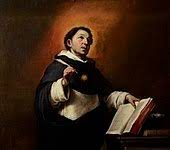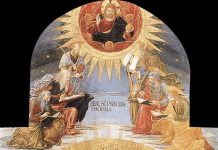I do it all for the sake of the Gospel, so that I may share in its blessings (1 Cor 9:23).
Last Sunday, in a presentation given at the end of Mass, you were asked a rhetorical question: What is the best kept secret of the Catholic Church? The response was the Church’s corpus of teaching on social issues. We were reminded that beginning with the encyclical of Pope Leo XIII, Rerum Novarum, which addressed the challenges of industrialization and the rights of workers in a rapidly changing world, other popes have also spoken on what we might term social issues; always, however, with a view to the inviolability and sanctity of the individual person. There is a saying that summarises why the Church exists and why and how we engage the world: “The salvation of souls is the greatest law” (Salus animarum suprema lex esto); and this is the greatest blessing of the Gospel—the salvation of our soul. This is both the commission and blessing that St. Paul speaks of in our second reading from the First Letter to the Corinthians. The obligation to proclaim the Gospel of salvation which was his by virtue of his apostleship is likewise the work of the Church always and everywhere.
Our Gospel text again this Sunday recounts miracles of healing and deliverance by our Lord. Teaching and healing are not dissimilar. When we receive the truth with humility and docility we are healed of our ignorance and all that is attendant upon a state of ignorance. In the early Church one of the terms used to describe the Sacrament of Baptism was Illumination. When we receive the truth and light of Christ our minds are enlightened and everything literally changes. The most profound change however is not simply intellectual. We do not simply pass from a state of ignorance to a state of knowledge, though this is true enough. We are transformed and we come to understand that we share in our Lord’s work of salvation. The healing of Peter’s mother-in-law though seemingly insignificant enabled her to serve. Christians are anointed for service. This is the mandate that we all received at our Confirmation and many of us then chose a Confirmation name; that is, the name of a Saint to whom we had developed a particular devotion or whose virtues we wished to emulate as we took our place in the ranks of the Church militant. This term, militant, describes the life of the Church and individual Christian vis-à-vis the world and the prince of this world, the devil. The Church is always engaged in a struggle to liberate and elevate the human condition, but not without cost, personal cost: “Truly, I say to you, there is no one who has left house or brothers or sisters or mother or father or children or lands, for my sake and for the gospel, who will not receive a hundredfold … with persecutions, and in the age to come eternal life” (Mk 10:28-30).
“That evening, at sunset, they brought to Jesus all who were sick or possessed with demons. … And he cured many who were sick with various diseases, and cast out many demons” (Mk 1:32). Deliverance is indeed a blessing of the Gospel and the healing of the human condition everywhere has been and continues to be the work of the Church, our work. To undertake this work effectively and for the benefit of all, both servants and those served, we must be clear about the nature of our work. Our Holy Father Pope Francis is unmistakably clear about our task: “The Lord sends us into spiritual combat. It is a fight to the death that He himself has undertaken, and one that we too are invited to identify as our own ultimate battleground, conscious that it is God’s war. For it is a war waged ‘against the enemy of human nature,’ that is, in the language of St. Ignatius, the devil. It is also the war engaged by the ‘friend of human nature,’ the Lord Jesus, who wants to win us for God and to gather up into Himself all that is good in creation in order to offer it to the Father, to the praise of His glory. What is at stake in this war? It is whether in my heart, as well as in the heart of the Church and of humanity itself, the Kingdom of Heaven will be established, with His law of love and the Lord’s way of life: poverty, humility, and service. Or whether the kingdom of this world will triumph, with its laws and values of wealth, vanity and pride” (In Him Only Is Our Hope, Cardinal Jorge Mario Bergoglio).
In the name of Christ our Lord we engage the world with humility and a spirit of service but not without clarity about both the nature of our struggle and the ultimate purpose of our work—the salvation and sanctification of every individual soul; “for what does it profit a man to gain the whole world and forfeit his soul?” (Mk 8:36). How can one possibly dismiss the value of anyone’s soul for whom our Lord shed His most Precious Blood? This is why St. Paul passionately says, “if I proclaim the Gospel, this gives me no ground for boasting, for an obligation is laid on me, and woe to me if I do not proclaim the Gospel!” (1 Cor. 9:16). This is why our prayer always includes the conversion of poor sinners and those who do not know the liberating truth and healing grace of the Gospel. Today in a special manner we pray for the young Jordanian pilot so brutally murdered. May God give consolation to his family, especially his wife. In the face of such atrocities we see how much the world is in need of the saving word of Christ. A shadow has fallen over our world. The world is witnessing a regional de-Christianising. In the Middle East, the cradle of our faith, Christians are violently persecuted. The Muslim world is threatened by religious fanaticism and both non-Muslims and Muslims themselves are victimized by this fanaticism. The Western world is threatened by secular fanaticism which seeks to eliminate Christianity and virtually any public invoking of God. Both extremes deny God’s tender love for a fallen humanity. This is why our witness, individually and collectively, is so necessary. Who can heal us, except our Saviour?
In the work that is ours by virtue of our discipleship we serve humanity as our Lord did. “That evening, at sunset, they brought to Jesus all who were sick or possessed with demons. And the whole city was gathered around the door, And he cured many who were sick with various diseases, and cast out many demons” (Mk 1:32-34). We can imagine that each of those healed and delivered encountered our Lord personally; each one was addressed and perhaps touched by Him. This is how we likewise encounter Him in the Word addressed to us and in the Eucharist that we receive. In like manner the Church addresses herself to each and every individual soul; so that in the heart of each disciple the Kingdom of Heaven will be established, with our Lord’s law of love and our Lord’s way of life: poverty, humility, and service.
As we prepare to receive our Lord in His Eucharistic Presence, let us remember that the Bread of Life that we receive conforms us to our Lord’s own life. In Him, the poor, the humble and those who serve find both a pattern of life and a means to fulfillment “for He satisfies the thirsty soul and the hungry he fills with good things” (Communion Antiphon, Sixth Sunday Per Annum, The Roman Missal). May our prayerful union with and in Christ our Saviour enable us to “joyfully bear fruit for the salvation of the world” (Prayer after Communion, Sixth Sunday Per Annum, The Roman Missal).











